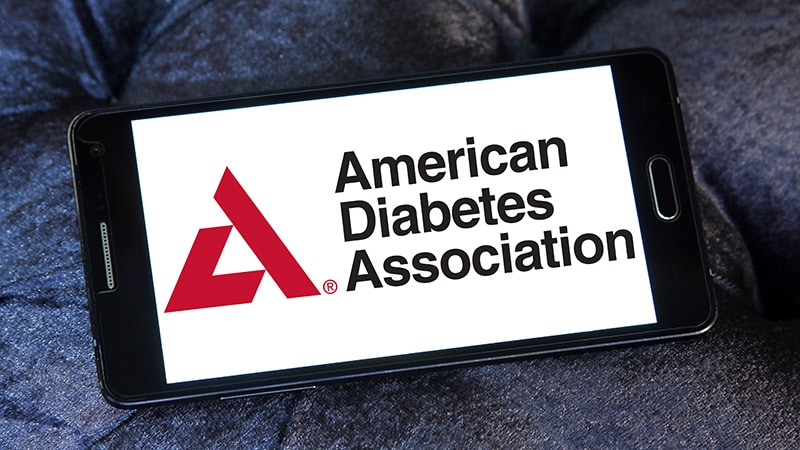The American Diabetes Association (ADA) 84th Scientific Sessions, taking place June 21-24, 2024, will showcase new endpoints for currently available diabetes management tools and highlight best practices for their use in optimizing outcomes for people with diabetes.
“Obesity was big last year and big again this year, but what we’re seeing now are benefits of the incretin drugs beyond obesity. Trials are examining the effects of [glucagon-like peptide 1 (GLP-1) receptor agonists] on, for example, kidney, cardiovascular disease, and obstructive sleep apnea…. What’s appearing now is a tremendous benefit of these incretin drugs in delaying and preventing complications,” Marlon Pragnell, PhD, ADA’s vice president of research & science, told Medscape Medical News.
Scientific Sessions committee chair Alice Cheng, MD, told Medscape Medical News, “What we’re going to see is really amazing data, whether it’s repurposing an old drug or understanding more about existing therapies and the incredible efficacy that exists now, for type 1 and type 2 diabetes.”
New trial data on GLP-1–based drugs will include SURMOUNT-OSA, an examination of tirzepatide in adults with moderate to severe obstructive sleep apnea and obesity. Lilly released the topline results in April, showing that the drug significantly reduced sleep apnea severity. The ADA session will provide more details.
Three other major GLP-1 receptor agonist trials examined once-weekly semaglutide: SELECT, a cardiovascular outcomes trial of 2.4 mg in people with type 2 diabetes; FLOW, a kidney outcomes trial of 1.0 mg in people with obesity and established cardiovascular disease but not diabetes; and the STEP HFpEF trial of 2.4 mg in people with obesity-related heart failure with preserved ejection fraction (HFpEF), with and without diabetes.
Main results from these trials were reported previously, but at the ADA meeting, “there will be new data, deeper insight, and more analysis,” Pragnell promised.
Differentiating ‘Fact From Fiction’
Another example of “deeper insight” that will probably draw a crowd is a three-way debate titled “Keeping Up With Hollywood — Who Should Be Prioritized for New Antiobesity Medications?”
Several symposia will also examine the downsides of the GLP-1 receptor agonist drugs, including severe side effects, weight regain, and nutritional deficiencies. Cheng, an endocrinologist at Trillium Health Partners, Toronto, said she hopes these sessions will help attendees “better understand exactly what’s fact and what’s fiction. How do we use these things well? And then can we translate into better implementation of our existing tools; that to me would be a huge, huge success.”
An old lipid drug, fenofibrate, will get a new look with results of the LENS trial, examining its use in progressive diabetic retinopathy. The beneficial effect of fenofibrate on diabetic retinopathy had been seen previously in secondary analyses from other trials, but this is the first trial of fenofibrate with retinopathy as a primary outcome. “This is a generic drug that could potentially delay the progression of eye disease,” Pragnell noted.
Indeed, Cheng said the LENS trial “could potentially be a real game changer for people with diabetes.”
For type 1 diabetes, another major randomized trial of a medication available in the US is INHALE-3, examining the use of inhaled insulin (Afrezza) along with insulin degludec compared with either automated insulin delivery or multiple daily insulin injections. Use of Afrezza as a very rapid-acting mealtime insulin would mean that people with type 1 diabetes who do not use insulin pumps could dramatically cut the number of injections they take, down to one (of basal insulin) per day. “That study will be really interesting,” Pragnell said.
Also in the type 1 diabetes space will be the first-ever consensus guidance for monitoring people who have tested positive for autoantibodies that place them at high risk of developing type 1 diabetes in the future. That statement will be co-sponsored by several international professional societies, including ADA, the American Association of Clinical Endocrinology, the Endocrine Society, and the European Association for the Study of Diabetes.
Cheng noted, “This guidance is critical because some people are going to be screened. And then what do we do? How often do we recheck them? How do we counsel them? This is actually a critical step…. And it will be published as well.”
Other major trial results include ATTEMPT, looking at sodium-glucose cotransporter 2 (SGLT2) inhibitors in adolescents with type 1 diabetes; the TIGHT trial, comparing intensive glucose management using continuous glucose monitoring vs usual care in hospitalized adults with type 2 diabetes; and part 1 of the CATALYST trial, examining the prevalence of hypercortisolism in difficult-to-control type 2 diabetes.
Regarding CATALYST, Cheng said, “Part 1 is going to give us a sense of prevalence, which in and of itself is amazing. I have no doubt — and I say this, embarrassingly — that I’ve probably missed subclinical Cushing [disease] in the people I’m following with type 2 diabetes. There’s so much potential overlap, and we’re not routinely screening. I think having a better sense of that prevalence, and maybe some guidance as to who we should screen…is going to be eye-opening.”
And of course, as always with the ADA Scientific Sessions, there’s much, much more on the agenda. According to Pragnell, “it’s going to be a great meeting. There will be a ton of stuff in 4 phenomenal days. Enjoy.”
Pragnell is an ADA employee. He has no further disclosures. Cheng has received honoraria for consulting and/or speaking from Abbott, Amgen, AstraZeneca, Bayer, Bausch, Boehringer Ingelheim, Eisai, Eli Lilly, GSK, HLS Therapeutics, Insulet, Janssen, Medtronic, Novo Nordisk, Pfizer, Sanofi, and Takeda.
Miriam E. Tucker is a freelance journalist based in the Washington DC area. She is a regular contributor to Medscape, with other work appearing in The Washington Post, NPR’s Shots blog, and Diatribe. She is on X (formerly Twitter) @MiriamETucker.
>>> Read full article>>>
Copyright for syndicated content belongs to the linked Source : Medscape – https://www.medscape.com/viewarticle/ada-scientific-sessions-2024-go-beyond-glucose-and-obesity-2024a1000bf3
